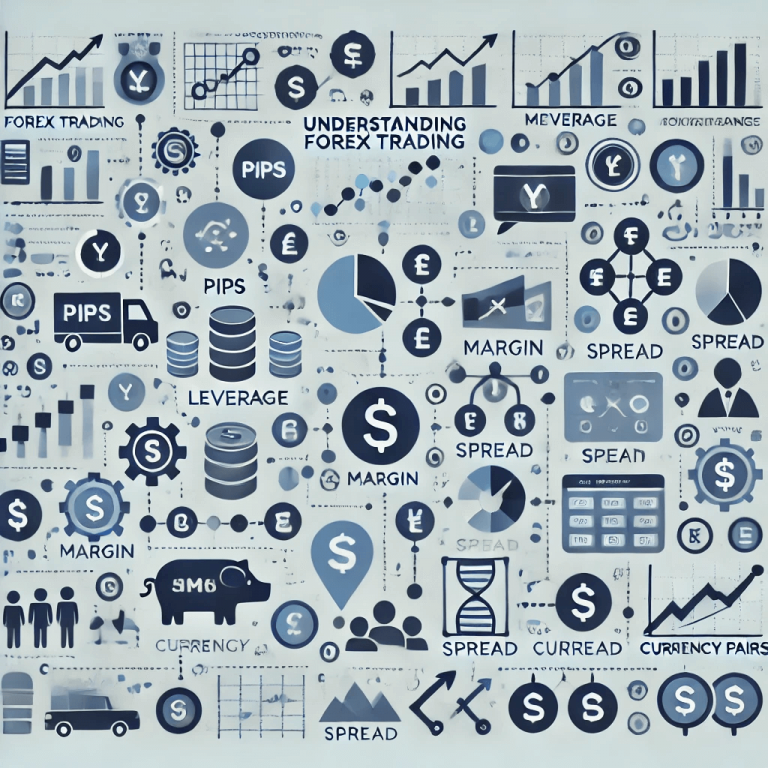Learning to achieve small wins in the Forex market forms the foundation of effective investing. Instead of striving for large profits—which inherently involve high risk—investors should focus on securing smaller, more stable outcomes. This approach not only minimizes risk but also improves discipline and emotional control, ultimately delivering greater benefits over the long term.
Table of Contents
- Why Are Small Wins Crucial in the Forex Market?
- How to Set Goals and Achieve Them Step by Step?
- How to Manage Capital with Small Wins?
- Analytical Tools in the Context of Small Wins
- Investment Psychology and Small Wins
Key Information
- Small, regular gains reduce investment risk.
- Realistic goals help systematically grow the portfolio.
- Proper capital management (stop-loss, take-profit) protects the investor.
- Analytical tools, such as RSI and MACD, support sound decision-making.
- Psychology and discipline are key to long-term success.
Why Are Small Wins Crucial in the Forex Market?
The Forex market is one where volatility is a daily occurrence. Currency prices can change dramatically in a short period, and the unpredictability of these movements means that large transactions pose a significant risk. Small wins build the foundation for success in the Forex market. Investing in major market moves may yield high profits, but it also carries the risk of similarly large losses. Focusing on smaller transactions reduces risk and helps build a stable investment portfolio. According to recent reports, market volatility averages 3.5% per day (Source: IMF, https://www.imf.org).
For example, an investor who consistently secures small gains can gradually increase their capital while minimizing the chance of substantial losses. These modest successes not only boost capital but also reinforce confidence, enabling the investor to avoid emotionally driven decisions. Building confidence is a key element of long-term investing. As Dr. Michael Thompson noted, “Stable, small gains represent the best indicator of investment efficiency” (Source: Bloomberg, https://www.bloomberg.com).
| Aspect | Benefits |
|---|---|
| Lower risk | Stability and smaller losses |
| Increased confidence | Avoidance of impulsive decisions |
How to Set Goals and Achieve Them Step by Step?
A key element of effective Forex market investing is setting realistic goals. Investors who define specific, measurable objectives have a greater chance of success. One should start with small, short-term goals, such as attaining modest profits from daily trades. Over time, these goals can evolve into more ambitious medium- and long-term objectives that facilitate systematic portfolio growth. Realistic goals are key to success.
Monitoring these goals is also crucial. Investors should regularly evaluate how their strategy is performing in practice and adjust it according to changing market conditions. The objective is not to avoid risk altogether, but to control it. Strategies must be adapted to current market conditions in order to maintain a balance between realizing gains and minimizing losses.

| Type of Goal | Time Horizon |
|---|---|
| Short-term | Daily/Weekly |
| Medium-term | Monthly |
| Long-term | Yearly |
How to Manage Capital with Small Wins?
Capital management is the cornerstone of any successful investment strategy. Investing for small gains requires significant precision and caution in handling funds. Stop-loss and take-profit are essential for protecting capital. Properly setting these levels shields an investor from unforeseen losses. Additionally, statistical data suggests that effective capital management can boost success rates by up to 40% (Source: World Bank, https://www.worldbank.org).
Another important aspect is appropriate position sizing. It is crucial not to commit too large a sum to any single trade, especially when targeting small gains. Investors should adjust their lot sizes in accordance with their capital to avoid risking excessive amounts on individual trades. The proper selection of leverage is also critical, as excessive leverage can lead to significant losses even with minor market movements.
| Strategy | Application |
|---|---|
| Stop-loss | Limiting losses |
| Take-profit | Protecting gains |
Analytical Tools in the Context of Small Wins
To make sound decisions in the Forex market, investors use a variety of analytical tools. One of the most frequently employed methods is technical analysis, which relies on charts and indicators to help forecast future market movements. Popular indicators include RSI (Relative Strength Index), MACD (Moving Average Convergence Divergence), and moving averages, all of which help determine optimal entry and exit points. Technical analysis is an invaluable tool that supports effective decision-making.
Candlestick patterns and Fibonacci levels also play a significant role in technical analysis, particularly when making decisions regarding small transactions. Utilizing these tools enables more precise market predictions and facilitates the achievement of stable gains. Trading systems are another instrument that can aid investors in executing small trades. By automating investment processes, investors can avoid emotional reactions that often lead to decision-making errors.
Investment Psychology and Small Wins
Psychology is an inseparable aspect of investing, particularly in the Forex market. Investors who concentrate on small wins are better equipped to manage the emotions and stress associated with investment decisions. Small successes help reduce pressure and boost motivation. Forex coaches emphasize the importance of treating mistakes as learning opportunities rather than failures. Effective emotion management, along with maintaining discipline and systematic decision-making, are crucial elements that pave the way for long-term success.

Investing in the Forex market requires patience, discipline, and robust risk management. Pursuing small wins is the key to attaining stability and success in this market. Investors who focus on realistic goals and modest gains are more likely to succeed over the long term. Critical factors include proper capital management, the utilization of analytical tools, and the ability to control emotions. Although this approach may seem less spectacular, it is far more effective in ensuring balanced and stable growth in the Forex market.




